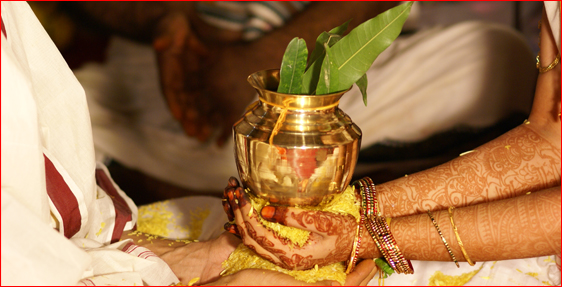
Rohtak, October 29: The notorious khap panchayats of Haryana on Sunday demanded a legal ban on same-gotra and same-village marriages, saying such a measure could solve the problem of rising crime against women.
Leaders of 30 khap panchayats who met in Rohtak passed a resolution calling for an amendment in the Hindu Marriage Act to bring the ban on such marriages into effect.
The leaders vowed to take up this demand at the highest level and said they would visit Delhi next month for submitting their representations to the President, Prime Minister and the Union law minister.
The meeting, held at the Chhotu Ram Dharamshala, was hosted by Rohtak's Chorasi khap and presided over by its leader, Hardeep Ahlawat.
Terming modern culture as "obscene", the leaders said the state's social fabric had been vitiated because people were "blindly following so-called modernization which is the root cause of crime against women and incidents of rape".
"The minds of the younger generation have been corrupted due to invasion of obscene and vulgar culture. Our youngsters have forgotten the rich values and customs of our society," said Baljit Malik of Gathwala khap.
Addressing the meeting, Hardeep Ahlawat demanded a change in the law to ban matrimonial ties between couples from same gotras and same villages — traditionally viewed as brothers and sisters.
"A legal ban on such marriages would also help curb the menace of honour killings and female feticide which has brought a bad name to Haryanvi society," said Om Prakash Dhankar, a khap leader.
Other leaders argued that there would not be any honour killings or female foeticide if same-gotra marriages were banned. "People kill their daughters out of the fear that one day they might elope with men of the same gotra," said Dhankar.
"A delegation of khap panchayat would visit Delhi on November 5 with copies of our memorandum to be handed over to India's top leaders. We would also call on the national commission for women the same day and asked it to raise the demand," he added.
The khap leaders distanced themselves from a recent statement of a khap mahapanchayat spokesman who had sought lowering of the marriageable age of girls from 18 to 16 years to avoid rapes. The leaders said such statements had been spoiling the image of khap panchayats.
"We strongly differ with such people. We have decided to launch social awareness campaign against extravagant marriages, dowry etc in society," he said.
The khap panchayats have also urged the Haryana government to ban wedding ceremonies at night which they said lead to road accidents. Khap leaders said most people get drunk while attending marriages at night and then drive, resulting in road accidents.





Comments
Add new comment